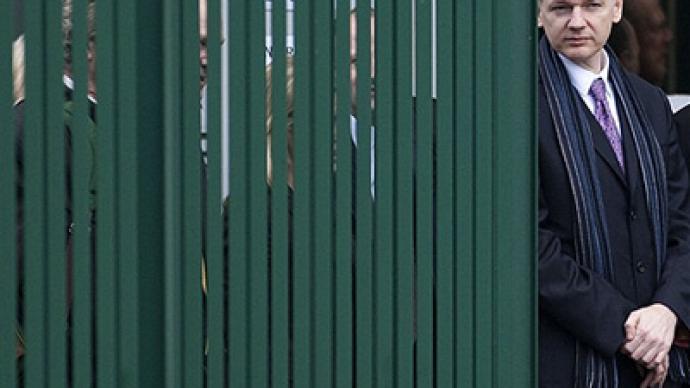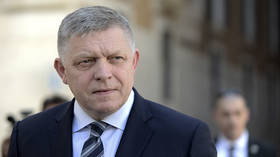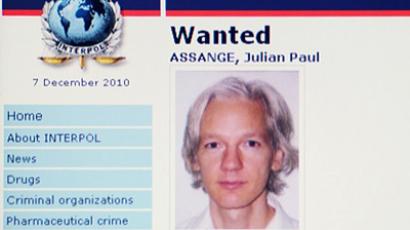Assange will be extradited to Sweden

A London court has ruled that Julian Assange, founder of the controversial whistle-blowing website WikiLeaks, will be extradited to Sweden to face sexual assault charges.
The judge said the allegations of rape and sexual molestation by two women are extraditable offences and the Swedish warrant was properly issued.Assange denies the allegations, saying they are part of a conspiracy to have him handed over to the US. He outraged Washington after his website published secret American war logs and diplomatic cables. Assange fears he will face a life sentence in the US in case of extradition. His defense team has a week to appeal the verdict, something they've already said they intend to do.
Flawed defense
The judge knocked down all defense arguments one by one.The defense maintained that Assange had made himself available for questioning while still in Sweden after alleged offences took place.However the judge said that Assange’s Swedish lawyer had mislead the court when he said that that they have tried to contact the prosecutor and offer up Assange for questioning. The judge said that there was evidence that Assange had been uncontactable and had avoided interrogation.The court has also been looking at whether the Swedish prosecutor was qualified to issue a European arrest warrant and if it would be an abuse of justice to send Assange to Sweden for questioning. The judge said that the prosecutor was, and although the warrant was possibly disproportioned under the circumstances, it was certainly valid. The judge also clarified that the warrant was issued with a view to prosecuting Assange rather than merely questioning him and there is no reason not to extradite him within sixty days.During a three-day hearing earlier this month the defense team focused on what they called a “bizarre handling of sex-crime cases in Sweden.” Assange could be held with no contact with the outside world in a prison complex, which has been criticized for its treatment of prisoners. There is no bail and trials are held behind closed doors, which they say means that justice will not be served.But the judge pointed out that the private trial would be fair, it was inside the country’s constitution to do that in sexual offence cases.Assange’s lawyer, Geoffrey Robertson, has also attacked Swedish prosecutor Maryanne Ny, bringing evidence that she has a grudge against men and is a “radical feminist”. The judge said that a person who had made such allegations had not actually met Maryanne Ny in person and had no grounds to make those kinds of accusations without personal knowledge of the prosecutor. Robertson has also said the rape charges which Assange is wanted for questioning under would not be crimes under British law.However the judges said that at least one of the charges would constitute rape and that all four of them were extraditable offences.Assange’s lawyers accuse Sweden of politicizing the issue calling into question the independence of the judiciary in this case. The defense’s main fear is that if extradited to Sweden, Julian Assange could be sent from there to the US to face espionage charges, but the judge said that there is no evidence to suggest that his extradition would be requested by the US or evidence that he would be tortured, executed or even sent to Guantanamo Bay.Earlier a member of the US Department of Justice in London has stressed that no charges have been brought against Assange in America, but confirmed that there was an ongoing investigation into WikiLeaks.
Course of action
At the moment Julian Assange and his defense team have seven days to lodge an appeal against this decision and Thursday’s verdict is very unlikely to be the end of this story.Defense had always said that if they lost, they would take the case to the High Court and if they have to even to the Supreme Court and then further to the European Court of Human Rights.Experts say that this case will not be over until the summer, but in fact it seems likely that it could go on for much longer than that.
System override
Writer Israel Shamir says that from the beginning it was very difficult to claim that Assange should not be extradited, because members of the EU have to work together when it comes to the legalities of this process.“It is very difficult for a judge of any European country not to accept a warrant issued by a fellow European state. That is a law that was accepted by the EU that every country is able to issue a warrant and such warrant should be served in any other country,” he said.However Shamir believes that the process will last as long as there is enough money to pay the lawyers, and Assange will not be extradited to Sweden any time soon.Shamir also pointed out that the Swedish legal system has become very influenced by feminist elements and gender activism.“It became such a system, that practically every man could be sent to jail over a complaint made by telephone,” he said.
Investigative journalist Tony Gosling believes it is a very dangerous decision that is being made and essentially WikiLeaks is being sabotaged by the British judicial system.“There have not even been charges laid in Sweden against Assange and it just seems to me that this is a blatant piece of victimization,” he said “There is some evidence, but it doesn’t seem even in Sweden enough evidence to reach the stage of charging him with rape, even though rape criteria in Sweden is very different to some other parts of Europe.”Gosling says that it is very important for the international community to have sites like WikiLeaks around.“This is a very important way we can get round some of the obsessive secrecy that has been going around some of the obsessive secrecy that is going on in the international diplomacy right now,” he said.
Sharron Ward, campaigner from the organization Justice for Assange, says no one can be sure of Julian Assange’s innocence, but the aim of the campaign is to ensure a fair trial for Assange. “I think it’s only fair that everyone should be presumed innocent until proven guilty. And I don’t think anything with regards to the Julian Assange case has shown that so far. We do believe that he’s been really given a trial by media and that a lot of the evidence has been played out across the media,” said Ward.
Assange characterizes WikiLeaks as a mere media outlet, similar to the Guardian, New York Times or Le Monde, so if the US government is going to go after WikiLeaks and try to shut it down, why is it not doing the same to all these media sources that also published classified information, wonders Brian Becker, director of the anti-war ANSWER coalition. “It’s clear that they [the US government] consider WikiLeaks to be a subversive organization, because it believes that government secrets, especially classified documents that should not be classified, conceal the truth to the public, to the people of the United States, to the people of the world about US foreign policy that dominates world politics, especially for the people of Iraq or Afghanistan. They believe that those stories should be told,” Becker told RT.
What London’s decision to extradite Assange does, is illustrate the fundamental problem with the European arrest warrant, claims Gerard Batten, MEP for the United Kingdom Independence Party.“What it does, it removes the fundamental rights of the English courts to protect its own citizens and guests of the country, because they [the English courts] are simply not allowed to look at the prima facie [apparent] evidence in a court case like this and take it into account,” said Batten.
Sara Flounders from the American activist group International Action Center says that people all over the world have a right to know the information Julian Assange revealed. These materials should be on a public domain. And the current situation with Assange, she says, is an “effort to shut down Wikileaks, to intimidate others from taking action of revealing US’s secrets”.
International extraditions lawyer Douglas Mcnabb says if Washington wants to lay its hands on Assange, American prosecutors will certainly find violations of the law to charge him with.“Very little evidence needs to be shown in order to support an extradition from the UK to the US. So, I would say that if the US wanted to extradite Mr. Assange at some point, that now would be the time to do that. I suppose they seek to have him extradited from Sweden,” noted MacNabb.“From the realistic point of view, I think that politics does come into play. I think that the US very much wants to get its hands on Mr Assange in a US courtroom. What they alternately are going to charge Mr. Assange with – I don’t know. We have something like 4300 federal crimes in the US and approximately 55 additional crimes are added to this list every year. If a federal prosecutor wants to indict Mr. Assange, they are going to find something to charge him with, whether it would be something very serious like espionage or whether it would be something less serious. Anything in the federal system, I can tell you, is serious. And I think if the US government wants him, they are going get him.”














